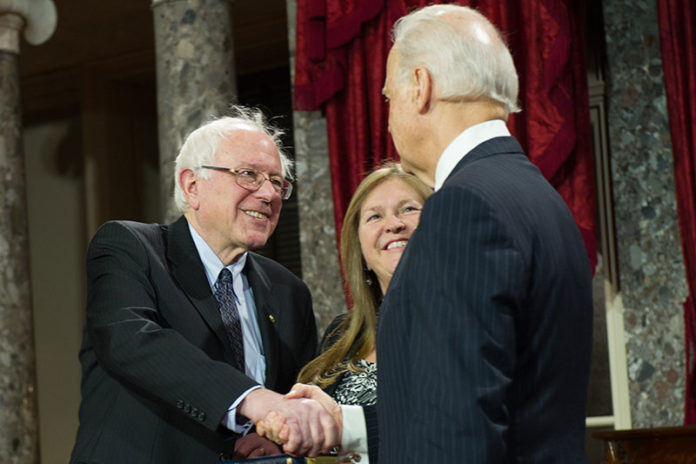At the bottom of my list of the Democratic candidates I would like to see nominated in 2020 is Bernie Sanders. At the top of my list of the candidates I expect to see nominated? Same.
The presidential campaign is still young. The first actual votes will not be cast for more than nine months, when the Iowa caucuses are held on Feb. 3. In a congested race, as we know from the Kentucky Derby, the fastest contenders can find themselves hopelessly boxed in. But at the moment, it’s easier to see a path for Sanders to win the Democratic nomination than it is for anyone else.
I have written before of my many objections to Sanders, which have not abated. But his political strengths are not to be underestimated.
Plenty of politicians look formidable until they actually enter the campaign. Remember Rudy Giuliani in 2008? Or Rick Perry in 2012? The jump to the major leagues is bigger than it looks.
Sanders, however, has competed at this level before, and he came close to defeating a rival who was the most admired woman in America for 17 consecutive years.
Hillary Clinton was a savvy, impeccably qualified and lavishly funded candidate who had the backing of the party establishment and the nostalgic power of her husband’s presidency. Yet Sanders won 23 of the contests and 43 percent of the votes cast. He excited crowds in a way that Clinton never could.
He has raised far more money than anyone else this time around, the great majority from small donors — which suggests that a lot of people who voted for him in 2016 are eager to do it again.
Sanders’ central advantage in 2016 was the blunt repetition of his signature themes: Medicare for All, taxing the rich, free college, fighting Wall Street, attacking inequality. No one can match his credentials on these issues. No one is better at communicating them in a forceful manner.
His status as the only socialist in Congress gave him an anti-establishment credibility that remains as potent as ever. But for all his eccentricities, Sanders proved to be a sure-footed campaigner who avoided gaffes without ever sounding canned or cautious. His appearance at a Fox News town hall Monday showed fearlessness.
Sanders has wrought a change in the Democratic Party, pushing its ideological center of gravity well to the left of where it was just four years ago. He paved the way for such firebrands as Alexandria Ocasio-Cortez and Rashida Tlaib to be elected to the House. The Congressional Progressive Caucus has 98 members, up from 69 in 2014.
Medicare for All has gained the support of many Democratic politicians, including several of those running against him. On that and other issues, the senator from Vermont could sue most of his opponents for plagiarism.
His disadvantage is that he’s well to the left of most Democratic voters — half of whom say they are moderate or conservative. The New York Times noted that “perhaps 1 in 10 Democrats over all… might identify as democratic socialists, based on recent polls.”
Among less liberal Democrats, the obvious alternative to Sanders is Joe Biden. But Biden has run twice for president with dismal results. His responses to women’s complaints about his unwanted touching were tone deaf — and revived bitter memories of how he handled the Clarence Thomas confirmation hearings.
His past positions on abortion, criminal justice and the Iraq war will be used against him. He has a propensity for unforced errors, brought on by his garrulous nature and thirst for attention. If any candidate is a good bet to self-destruct, it’s Biden.
Donald Trump got the Republican nomination not because he was the best candidate but because the better ones split up the voters who disliked him. Sanders may not be the choice of most Democrats, but he is better placed to capture consistent pluralities than anyone else.
Candidates who might outshine him in a small field, such as Elizabeth Warren, Kamala Harris, Cory Booker and Julian Castro, will struggle to set themselves apart from each other. Fresh-faced youngsters Beto O’Rourke and Pete Buttigieg are bound to seem underprepared next to the battle-scarred Bernie.
Most Democrats would probably prefer not to risk losing the election by nominating an avowed socialist. But as Trump showed in 2016, a majority that is divided can be conquered.



























